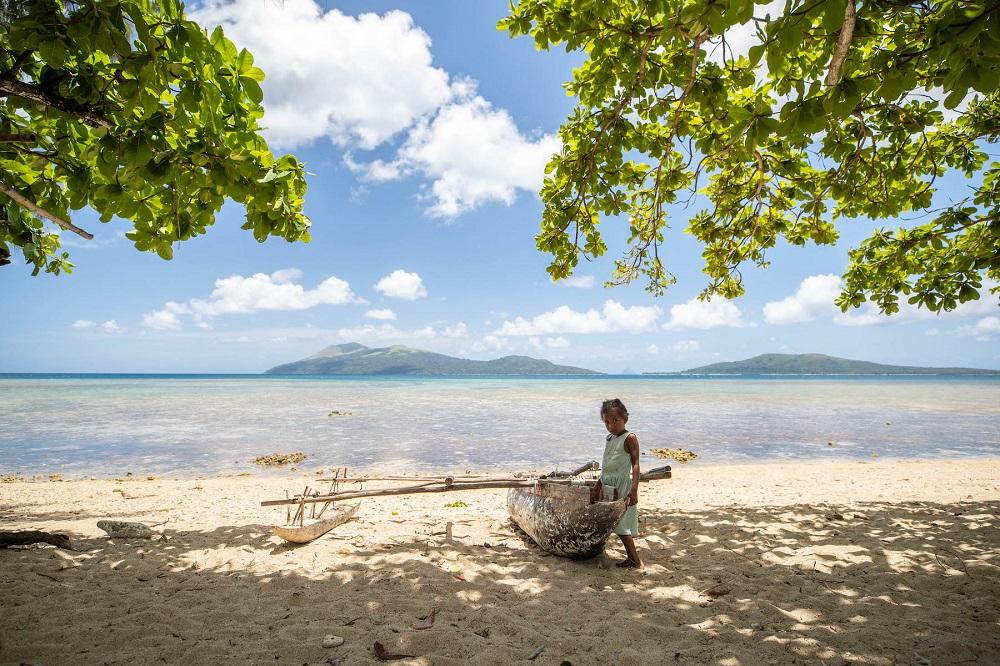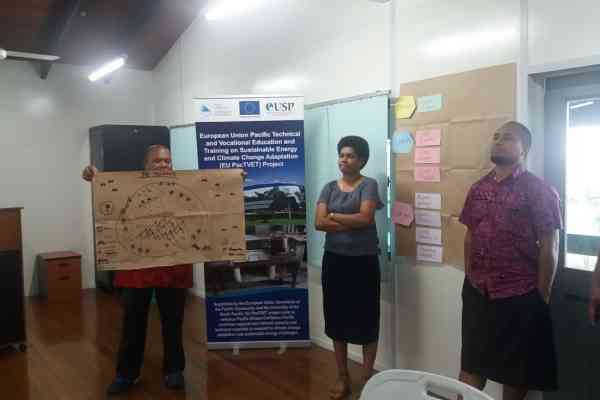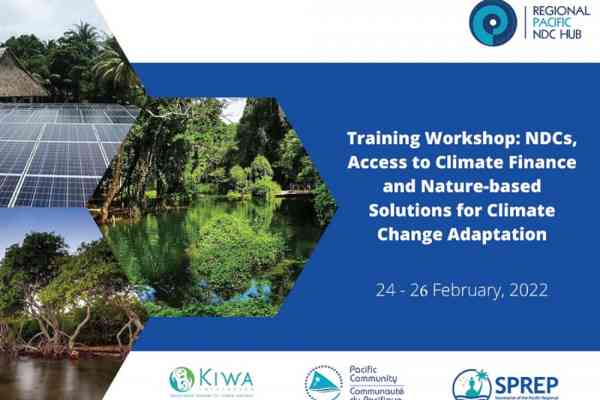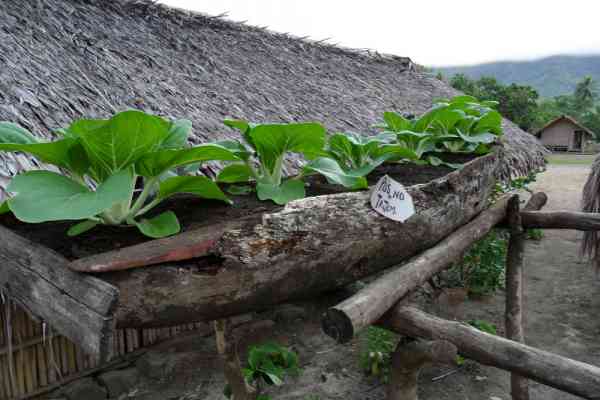As Pacific islands are highly vulnerable to climate change, the Pacific Community (SPC) is committed to building countries' technical capacities to scale up climate action and progress toward achieving the Agenda 2030. Over the last 6 months, SPC trained more than 150 people from the Pacific islands in identifying and implementing Climate Change adaptation and mitigation activities.
Building capacity on climate change adaptation is of paramount importance to enable Pacific Island Countries and Territories (PICTs) to address the adverse effects of climate change. As part of the response to the challenges related to climate change, PICTs will require, among other actions, coordinated adaptation and mitigation activities while ensuring national stewardship.
150 people
In this framework, planned development of knowledge, management and skills is significant for PICTs. Through capacity development initiatives, the Pacific Community (SPC) is committed to supporting Pacific leaders and population in achieving climate action and sustainable development aspirations that support a resilient Pacific. Since January 2022, SPC’s Climate Change and Environmental Sustainability (CCES) programme trained more than 150 people with a focus on coping with current climate variability and adapting to future climate change.
To promote the Paris Agreement goals, SPC supported the Regional Pacific NDC hub (as host of the Hub and an implementing partner) in enhancing climate change knowledge and raising awareness about Nationally Determined Contributions (NDCs) for the government of Niue. Entitled “Nationally Determined Contributions (NDC) and Climate Change Training”, this activity aimed to identify opportunities or ‘entry points’ for integrating climate change adaptation into different policies.
Following this workshop, SPC collaborated with the Secretariat of the Pacific Regional Environment Programme (SPREP) in the implementation of a unique event combining three modules related to climate change: the “Regional Pacific NDC Hub Training: Nationally Determined Contributions (NDCs), Access to Climate Finance and Nature-based Solutions (NbS) for Climate Change Adaptation Training”. The organisation provided participants with an up-to-date policy framework to reach net-zero emissions by 2050.
“Putting the right strategic framework in place and giving priority to capacity strengthening constitutes a crucial step to enhance PICTs’ climate resilience. An essential ingredient in SPC’s capacity development approach is collaboration, whether between countries and territories or between international and regional partners. These partnerships help to empower both individuals and societies.” explains Cameron Diver, CCES Acting Director.
In line with this commitment, SPC professionals from the PROTEGE project, Pacific Organic Learning Farm Network (POLFN) project and the Kiwa Initiative joined forces to identify opportunities towards building climate resilience through sustainable development practices in agroecology. Implemented to establish and manage learning farms, these two programmes are deployed to generate greater collaboration between Pacific territories (related to PROTEGE) and Pacific countries (pertaining to POLFN).
Given the appetite of the broader public for relevant information related to climate change impacts, SPC also includes communities and schools in its regular climate change workshops. As an illustration, in New Caledonia, the first climate fresco was recently held with secondary school students. Drawing on collective intelligence to explain the mechanisms of climate change, this workshop helped young people to better understand the causes and consequences of global warming.
some climate impacts are already irreversible — from rising sea levels to widespread wildfires
The last decade has been crucial for dealing with unprecedented biodiversity loss, rising inequalities, and the COVID-19 pandemic: the new challenge is all about shifting into climate emergency mode. The most recent Intergovernmental Panel on Climate Change (IPCC) Report stressed the critical importance of cutting emissions to slow climate change and recognized that some climate impacts are already irreversible — from rising sea levels to widespread wildfires. SPC is strongly focused on supporting greater climate action in alignment with Pacific priorities, the best available science, including IPCC recommendations, and securing the necessary resources to underpin this work.



